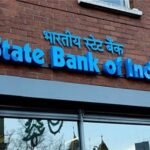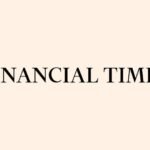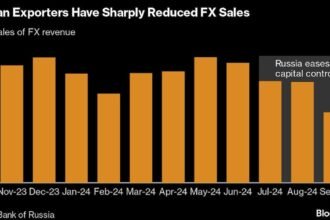Cairo, Egypt, May 14, 2024 – IFC announced a $150 million commitment to four investment and advisory projects that will support economic development in Egypt and other parts of Africa in key sectors including healthcare, trade, and finance. The four projects, which aim to support small businesses and mid-cap companies, include:
- An advisory program with Egypt’s Universal Healthcare Insurance Authority (UHIA) to develop a contractual framework between the government, healthcare services providers, and local insurance industry stakeholders to expand universal healthcare coverage for Egyptians, enhance healthcare quality, and scale private sector investments into Egypt.
- A local currency swap agreement with Banque Misr to expand IFC’s ability to lend to Egyptian companies that earn revenues primarily in Egyptian pounds and have limited access to foreign currency. Local currency financing is a key priority for IFC, allowing the organization to increase its investment program in Egypt and finance projects in critical sectors of the economy.
- An investment of $100 million in Banque du Caire, including a $50 million loan to increase access to finance for privately-owned micro, small and medium-sized enterprises (MSMEs), half of which is earmarked for women-owned businesses, and a $50 million trade finance facility to support Egyptian imports and exports as an issuing partner under the IFC Global Trade Finance Program. The project is supported by the Global Small and Medium Enterprises Facility (GSMEF), a blended-finance partnership funded by the UK’s Foreign, Commonwealth & Development Office (FCDO) and the Netherlands’ Ministry of Foreign Affairs. GSMEF is a program that promotes financial inclusion and reduces the financing gap faced by underserved SMEs in emerging markets.
- An equity investment of up to $30 million, along with a $20 million co-investment envelope into SPE PEF III, a private equity fund managed by SPE Capital, a private equity fund manager, to support mid-cap companies in Egypt, North Africa, and sub-Saharan Africa. At least a quarter of the fund’s invested capital is earmarked for women-owned or led businesses. The fund will help spur job creation, increase market productivity, and support entrepreneurs across the region.
The four projects were signed as part of the visit to Egypt by IFC’s Vice President for Africa, Sérgio Pimenta, and along the sidelines of IFC Day in Egypt – a forum dedicated to economic development opportunities and challenges in Egypt, and the role of IFC and the private sector to help the country achieve its development, poverty reduction, and job creation goals.
“IFC Day and our investments in Egypt’s key sectors demonstrates our ongoing commitment to supporting the country’s development goals,” said Sérgio Pimenta, IFC’s Vice President for Africa. “For nearly 50 years, IFC has worked alongside Egypt to boost private sector development –especially through macroeconomic challenges and regional uncertainties – and we plan to do more. The private sector is key to helping Egypt reach its full economic potential, creating jobs, and raising people’s living standards.”
“Our close partnership with the International Finance Corporation (IFC) has succeeded in providing soft financing and investments worth about $9 billion to the private sector, in addition to $34 million for advisory services in various sectors,” said Dr. Rania Al-Mashat, Egypt’s Minister of International Cooperation and Governor of Egypt at the World Bank Group. “Over the years, Egypt has become one of the largest countries of operations for the IFC. Despite the economic challenges regionally and internationally, from 2020 to 2023, about $2.5 billion was invested in the Egyptian private sector, and we look forward to more investments during the coming period at a rate of $1 billion annually under the umbrella of the 2023 – 2027 country partnership framework with the World Bank Group.” The Minister of International Cooperation added that the event demonstrates the Government of Egypt’s commitment to supporting and assisting the private sector in leading development efforts, and in building on what was achieved through two new agreements with the Bank of Cairo and the Universal Health Insurance Authority (UHIA).
“Our partnership with IFC reaffirms our shared vision to achieve Egypt’s development goals in the health sector,” said Dr. Mohamed Maait, Egypt’s Minister of Finance. “Through strong partnerships with the private sector, we can improve access to quality healthcare services for all Egyptian citizens.”
The Minister stressed that this cooperation contributes to achieving the goals of the comprehensive health insurance system by expanding the scope of health service to all citizens efficiently through strong participation with the private sector.
“It’s clear that IFC understands the importance and pivotal role of Egypt’s financial sector, with its diverse investment and advisory program that have more than doubled in the past year,” said Mr. Hassan Abdalla, Governor of the Central Bank of Egypt. “The variety of financial instruments deployed – from debt to equity, local currency swaps and beyond – have made a tangible impact in the resilience of the sector.”
Since beginning its operations in Egypt in 1975, IFC has invested and mobilized approximately $9 billion in investment projects in the country. IFC’s private sector support in Egypt focuses on the fintech, climate finance, manufacturing, infrastructure, renewable energy, healthcare, gender, and other sectors.
Last year, IFC was appointed as the strategic advisor for the government’s Asset Monetization Program to harness private capital and provide advice on the management of state-owned assets.
About IFC
IFC — a member of the World Bank Group — is the largest global development institution focused on the private sector in emerging markets. We work in more than 100 countries, using our capital, expertise, and influence to create markets and opportunities in developing countries. In fiscal year 2023, IFC committed a record $43.7 billion to private companies and financial institutions in developing countries, leveraging the power of the private sector to end extreme poverty and boost shared prosperity as economies grapple with the impacts of global compounding crises. For more information, visit www.ifc.org.
Stay Connected with IFC on social media.




















